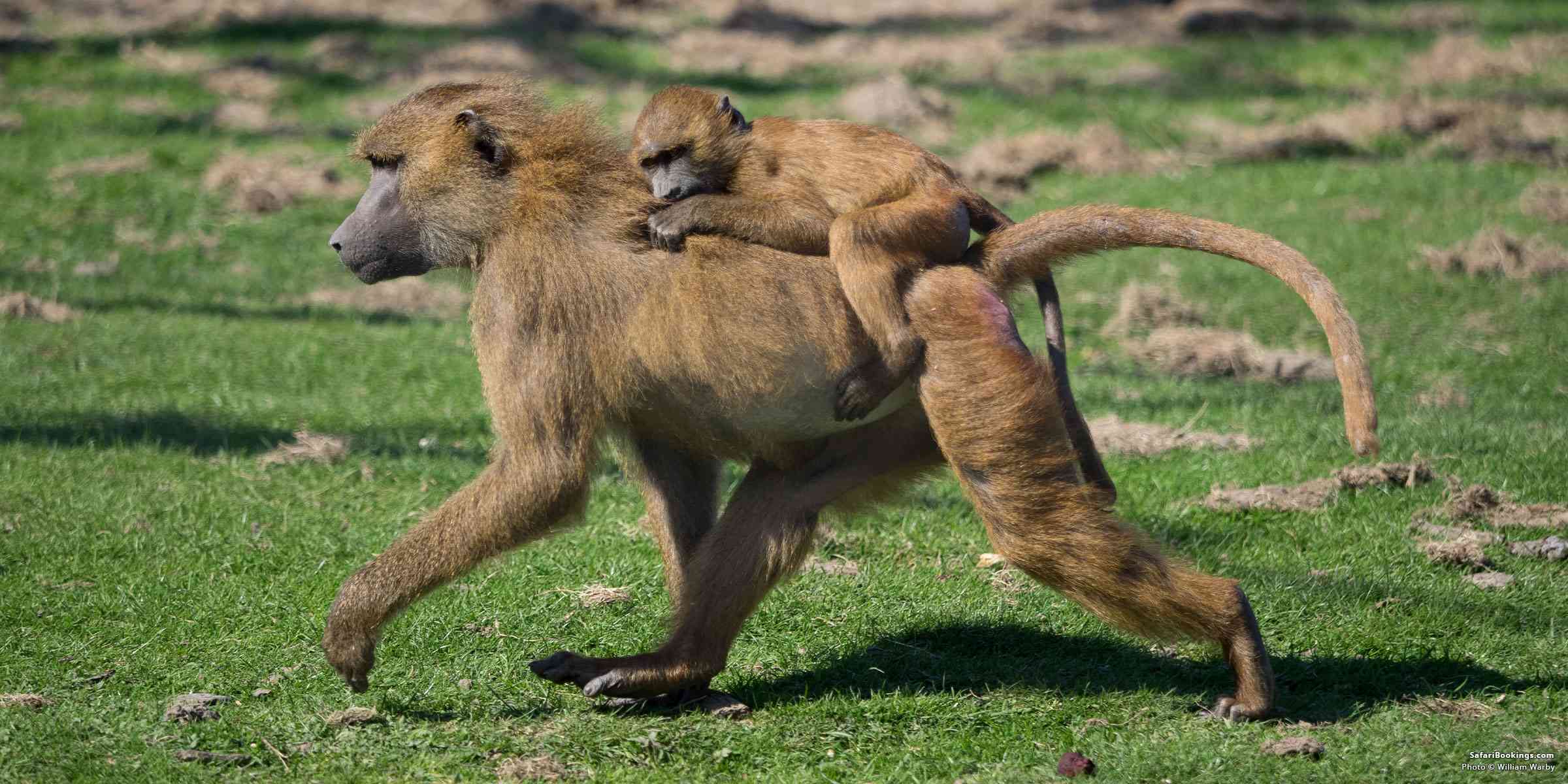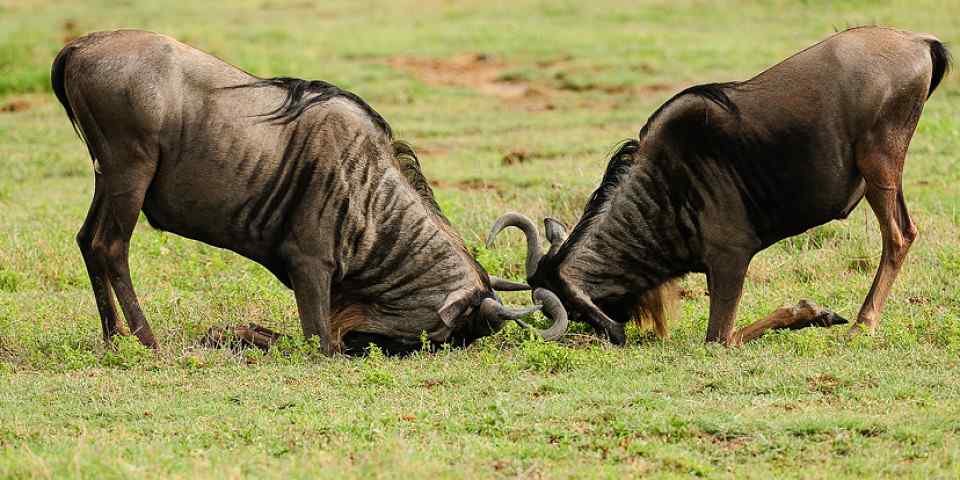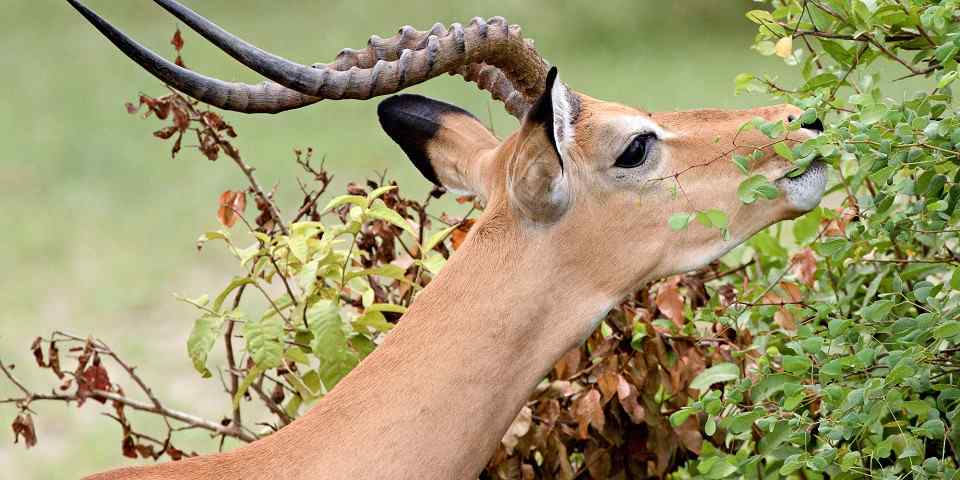
5 Interesting Facts About the Baboon (Papio Papio)
 By
Mike Unwin
By
Mike Unwin
Mike is an award-winning wildlife writer, former editor of Travel Zambia magazine and author of the Bradt Guide to Southern African Wildlife.
This sociable, versatile and highly intelligent monkey is the most widespread primate of sub-Saharan Africa. Where humans pose no threat – such as around safari lodges – it can become a confident opportunist, so keep your tent flaps closed and your picnic lunch out of sight. The several different races of baboon, from the chacma baboon of the Cape to the olive baboon of the Masaai Mara, are today recognised by most scientists as regional variants of a single species. Below are five interesting facts about the baboon.
Want To Go on an African Safari?
Click on the button below to compare African safaris offered by top-rated tour operators.
 By
Mike Unwin
By
Mike Unwin
Mike is an award-winning wildlife writer, former editor of Travel Zambia magazine and author of the Bradt Guide to Southern African Wildlife.
More About This AuthorAfrican Safari Tours
-
![4-Day Serengeti, Ngorongoro Crater and Tarangire Fly-in]()
4-Day Serengeti, Ngorongoro Crater and Tarangire Fly-in
$2,180 pp (USD)
Tanzania: Private tour
Mid-range Lodge & Tented CampYou Visit: Zanzibar (Start), Serengeti NP, Ngorongoro Crater, Tarangire NP, Zanzibar (End)

Go Serengeti African Tours
4.9/5 – 474 Reviews
-
![5-Day Trip to Tarangire, Manyara, Serengeti & Ngorongoro]()
5-Day Trip to Tarangire, Manyara, Serengeti & Ngorongoro
$1,903 pp (USD)
Tanzania: Private tour
Mid-range Lodge & Tented CampYou Visit: Arusha (Start), Tarangire NP, Lake Manyara NP, Serengeti NP, Ngorongoro Crater, Arusha (End)

Serengeti Smile
5.0/5 – 993 Reviews
-
![5-Day Northern Parks Tented Safari]()
5-Day Northern Parks Tented Safari
$1,573 to $1,767 pp (USD)
Tanzania: Private tour
Mid-range Lodge & Tented CampYou Visit: Arusha (Start), Tarangire NP, Serengeti NP, Ngorongoro Crater, Lake Manyara NP, Arusha (End)

Shemeji Safari
4.7/5 – 299 Reviews



 Subscribe to our newsletter
Subscribe to our newsletter
 Follow us on Instagram
Follow us on Instagram





